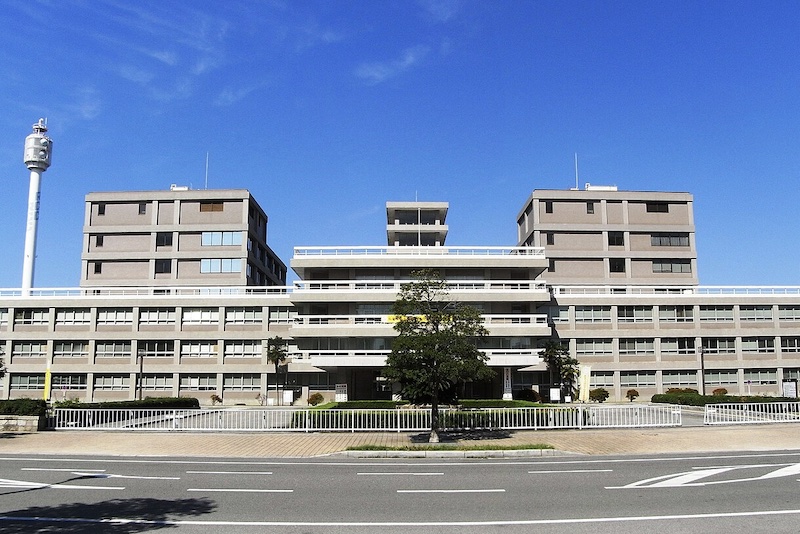Wisconsin School District Can’t Enforce Restroom Ban, Court Says
Judge issues injunction preventing school officials from disciplining an 11-year-old trans student for using the girls' restroom.

A federal judge has blocked a Wisconsin school district from enforcing its policy barring transgender students from facilities that correspond with their gender identity while a lawsuit challenging the policy works its way through the courts.
U.S. District Judge Lynn Adelman, of the Eastern District of Wisconsin, ruled last week that the Mukwonago Area School District must allow an 11-year-old transgender student to use facilities that align with her gender identity.
The 11-year-old, known as Jane Doe #1, and her mother sued the school district, which passed a policy requiring transgender youth to use only facilities matching their assigned sex at birth last month, according to the Milwaukee Journal Sentinel.
In their lawsuit, the plaintiffs claim that the school district’s policy has caused the 11-year-old — who reportedly has identified as a girl since age 3 — emotional and mental harm, and violates both her right to equal protection under the law and prohibitions on sex-based discrimination contained in Title IX of the Education Amendments Act of 1972.
Alexa Milton, an attorney representing the girl and her mother, told the Wisconsin Examiner that her client has been using the girls’ restroom since third grade without incident. But some parents of other students began complaining after hearing that her client was transgender.
“The school started to get a bunch of messages from angry parents, sort of abstractly angry about the idea of any quote-unquote ‘boy’ in the girls’ restroom when, of course, that’s not what’s happening,” Milton said. “And the school board got involved, as well as the new superintendent, and ultimately started preventing our client from using the girls’ restroom.”
The 11-year-old’s mother, referred to in court filings as Jane Doe #2, has claimed that the principal reported receiving complaints from other parents about her child, including asking questions about the student’s genitalia and other personal issues. The principal informed Doe that she refused to discuss the student’s situation with any other parents, but warned that the situation was beginning to escalate.
Shortly afterward, organized groups began showing up at school board meetings to demand the district impose restrictions on the types of facilities that transgender students can access, leading to the adoption of a new policy last month.
According to court filings, Mukwonago Area School District Superintendent Joe Koch reached out to the 11-year-old’s mother to lay out new restrictions requiring her to either use the boys’ restroom or a gender-neutral facility.
Shortly afterward, school staff began policing the hallways and monitoring the the 11-year-old’s bathroom habits closely, even pulling her out of class to reprimand her or threatening to discipline her.
Milton says that prior to these teacher-led altercations, the student had no problems with other students, but “[o]nce this all started to ramp up, she did start to have issues with bullying and harassment,” including being called a “freak” or being told she didn’t belong at the school.
Meanwhile, teachers at Mukwonago High School — where the girl is enrolled in summer school classes — have continued to monitor which bathrooms she uses and threaten her with disciplinary actions.
In the lawsuit, lawyers for the student’s family argue that the new policy and these repeated confrontations with adults have caused the 11-year-old to “suffer severe emotional distress and mental health effects, including thoughts of self-harm, nightmares, embarrassment, social isolation and stigma, and lowered self-esteem.”
In her ruling, Judge Adelman found that the student was likely to prevail in proving that the restrictive restroom policy violates her rights, citing a similar case from Kenosha, Wisconsin, in which a transgender student sued after being barred from male-designated facilities under a similar ban.
In 2017, the 7th U.S. Circuit Court of Appeals, which oversees Wisconsin, ruled in favor of the student, finding the Kenosha Unified School District’s restrictions on transgender students unconstitutional and discriminatory under Title IX and the Equal Protection Clause of the 14th Amendment.
Adelman issued a preliminary injunction prohibiting the superintendent and all school district officers, employees, or agents from barring the student from the girls’ restroom or taking any action to punish her in retaliation for using that facility. That injunction is expected to remain in place until the lawsuit is resolved in the courts.
Waukesha County, where the Mukwonago Area School District is located, has long been known as a rock-ribbed suburban area outside of Milwaukee, where Republican candidates often have to run up lopsided margins of victory in order to prevail in statewide races. It has also served as the battleground for several culture-war fights in recent years.
Last year, the Waukesha School District passed a ban on signs or posters in schools supporting social justice causes, the Black Lives Matter movement, or the LGBTQ community. That same year, books were purged from the shelves of school libraries in Elmbrook and Waukesha over allegedly “objectionable” content, including titles broaching racism, racial inequality, or LGBTQ topics, reports the Associated Press.
Earlier this year, a Waukesha elementary school teacher was removed from the classroom after criticizing the school district for banning the song “Rainbowland” from a spring concert because of the association of rainbows with the LGBTQ community.
Milton, the lawyer for the Doe family, said that it was important for her client to get some relief from the court, given the hostility she’s faced from administrators, teachers, and even fellow community members.
“We’re just really pleased that the court was able to recognize so clearly that her rights were being violated, and take action so quickly to protect them, and we’re looking forward to defending that victory as litigation continues,” Milton told the Examiner.
Support Metro Weekly’s Journalism
These are challenging times for news organizations. And yet it’s crucial we stay active and provide vital resources and information to both our local readers and the world. So won’t you please take a moment and consider supporting Metro Weekly with a membership? For as little as $5 a month, you can help ensure Metro Weekly magazine and MetroWeekly.com remain free, viable resources as we provide the best, most diverse, culturally-resonant LGBTQ coverage in both the D.C. region and around the world. Memberships come with exclusive perks and discounts, your own personal digital delivery of each week’s magazine (and an archive), access to our Member's Lounge when it launches this fall, and exclusive members-only items like Metro Weekly Membership Mugs and Tote Bags! Check out all our membership levels here and please join us today!



























You must be logged in to post a comment.